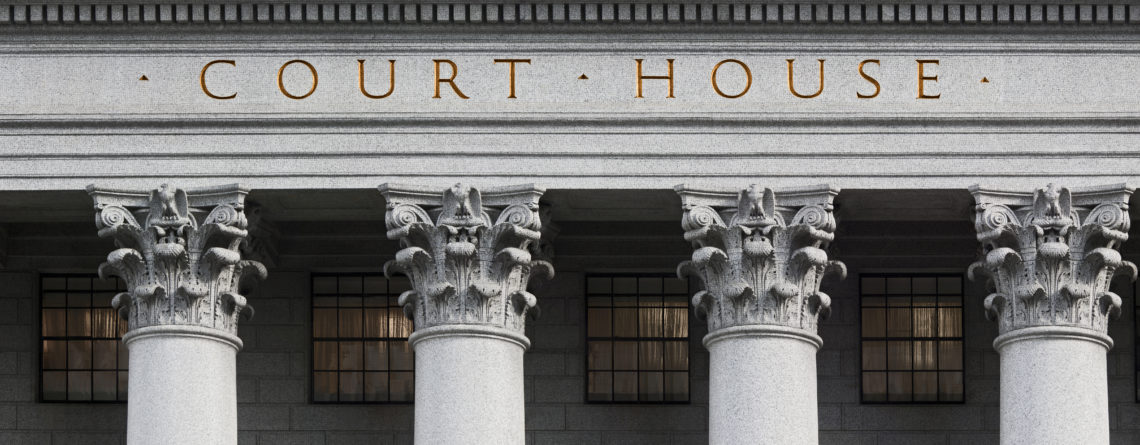Collection Cases: Going to Trial
Posting by Andrew Staab
As Fund Counsel, I am often asked “How many cases do you win at trial?” I say without committing to a number or won-loss ratio, “A few.” I must admit that going to trial is not something I particularly savor, because Taft-Hartley collections law is slanted so strongly in favor of the Fund that cases should never go to trial. I have preached that if a Fund’s delinquency case goes to trial, there might be something wrong with the Fund’s case. That “preaching” does not take alter egos, successor liability and piercing the corporate veil cases into account, because those cases are predominantly fact-driven. My preached message is that fact issues usually revolve around either Collective Bargaining Agreement formation or audit disputes. This blog entry takes a closer look at handling some parts of an “audit dispute” trial.
1) The Role of Payroll Auditor as Expert Witness
At the 2010 Collection Procedures Institute of the International Foundation of Employee Benefit Plans, a prominent litigator suggested that Fund Counsel should seriously consider qualifying the Fund’s payroll auditor as an “expert” witness. The Federal Rules of Evidence come into play because an expert witness is expected to give an opinion about an aspect of the case. As an expert witness, the payroll auditor would be permitted to give an “expert” opinion about various aspects of the audit (e.g., the amount of a delinquent employer’s liability, etc.).There are no hard-set requirements for who can be an expert witness and I guess we can all be experts at something. The attorney proposing the idea of making the payroll auditor an expert stated this is also a tactical maneuver, because it forces the delinquent employer to consider getting its own expert witness to rebut the testimony of the Fund’s expert, the payroll auditor. It is hopeful the delinquent employer will see that the additional expense and effort of finding its expert might be too much.
When I heard the suggestion to make a payroll auditor an expert, I had a sudden chill run down my spine. What happens if my auditor doesn’t live up to the expectation of an “expert?” There is no real minimum education requirement for a payroll auditor, and many of my Funds use payroll auditors who do not have a college degree. Can they still be experts? Sure. But if the hope is to also force the delinquent employer to hire an expert, then there is a risk that the delinquent employer will find a heavy hitter CPA from one of the Big 4 firms. If a court is weighing expert witness testimonies and the Fund’s payroll auditor has a 2-year associate’s degree, it does not look very good when the delinquent employer’s expert is a CPA and a published author. The tactical ploy of qualifying the Fund’s payroll auditor as an expert witness could actually backfire.
For me, the question is whether I want the payroll auditor to provide an opinion. I usually do not be seek an opinion from the auditor, but rather a factual recitation of what was reviewed, what was determined to be the delinquency, and is the payroll audit summary an accurate reflection of the payroll audit. Even in that short scope, there is a risk that opinion testimony might be heard, but I have not yet had opposing counsel object. It is not so much the verbal testimony, but rather the written exhibit(s), from which the payroll auditor is testifying.
2) Exhibit Use During a Trial
Two of the most important exhibits I seek to introduce at trial are the Fund’s payroll auditing procedures and the payroll audit summary. Both of these exhibits will be introduced through either the payroll auditor who did the actual audit or that auditor’s supervisor. The payroll auditing procedures should be a product approved by the Fund’s Board of Trustees with the assistance and consultation of Fund Counsel, Fund Auditor and Fund Administrator. Again, there is no firm rule as to what should be in the procedures; what is most important is that the auditor and the Fund’s trustees follow the procedures. If the auditor or the trustees failed to follow it, then the document can be a hurtful exhibit for the Fund. The same is true for the payroll audit summary. It must be prepared in such a way that the trustees can understand it and the auditor can explain it. If the auditor’s supervisor is the testifying witness, then it is crucial that the supervisor also played a direct role in the review and approval of the actual audit exhibit. Otherwise, the supervisor lacks the appropriate foundation to serve as the witness to the particular exhibit. It could therefore be damaging to the Fund’s case if the supervisor witness has not seen the audit until trial.
3) Marching Forward Through to Trial
In trial preparation, I try to get all of my exhibits’ admission stipulated before the trial starts; that way, I do not have to worry about objections to trial exhibits. I also try to keep the witness testimony brief. At trial, Fund Counsel should focus energy on cross-examination of the delinquent employer and not worry whether the payroll audit will make it into evidence.






